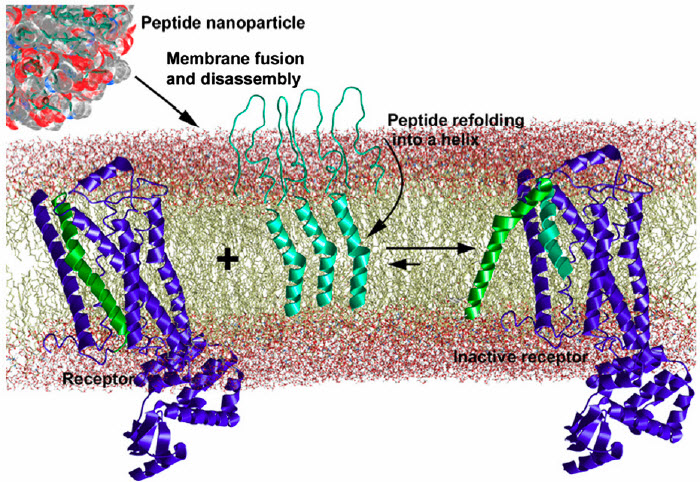‘Virus-like’ nanoparticle built to target tumors
August 20, 2012

Proposed mechanism of action of fusogenic protoviral nanoparticles (credit: Sergey G. Tarasova et al./PNAS)
National Cancer Institute scientists have built fully synthetic self-assembling virus-like nanoparticles that fuse with cells like real viruses, Nature News Blog reports.
Viruses are extremely effective at targeting cells and delivering proteins into them. To mimic a virus, the team used amino acids to build a molecule that resembles a known protein that spans cell membranes.
The team previously described how these proteins self-assemble into spherical nanoparticles in solution. Now the team has gone further, showing that these nanoparticles can fuse with cells via receptors.
By incorporating compounds into their nanoparticles that normally bind prostate tumor cells, their virus-mimic selectively targets these cells. They can be used to encapsulate drugs, meaning that a synthetic virus-like particle could be created to target cancer cells and then deliver a chemotherapy payload precisely to the tumor.